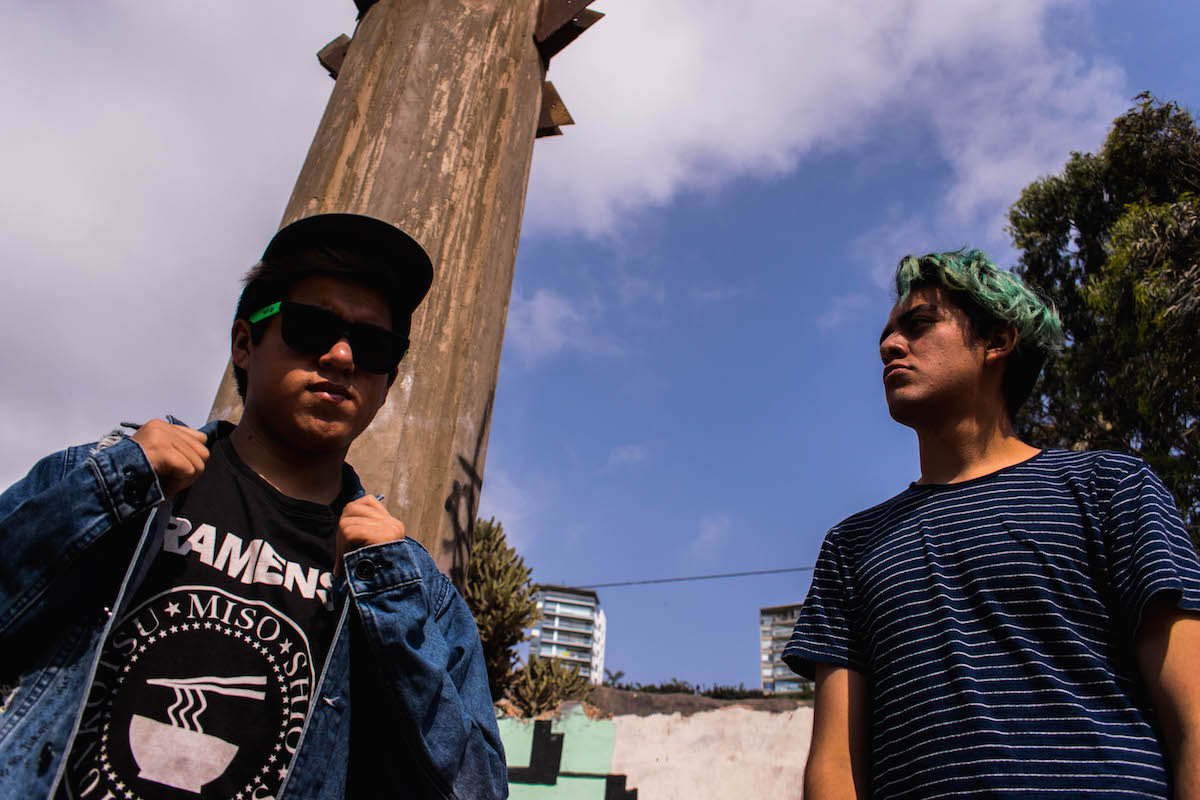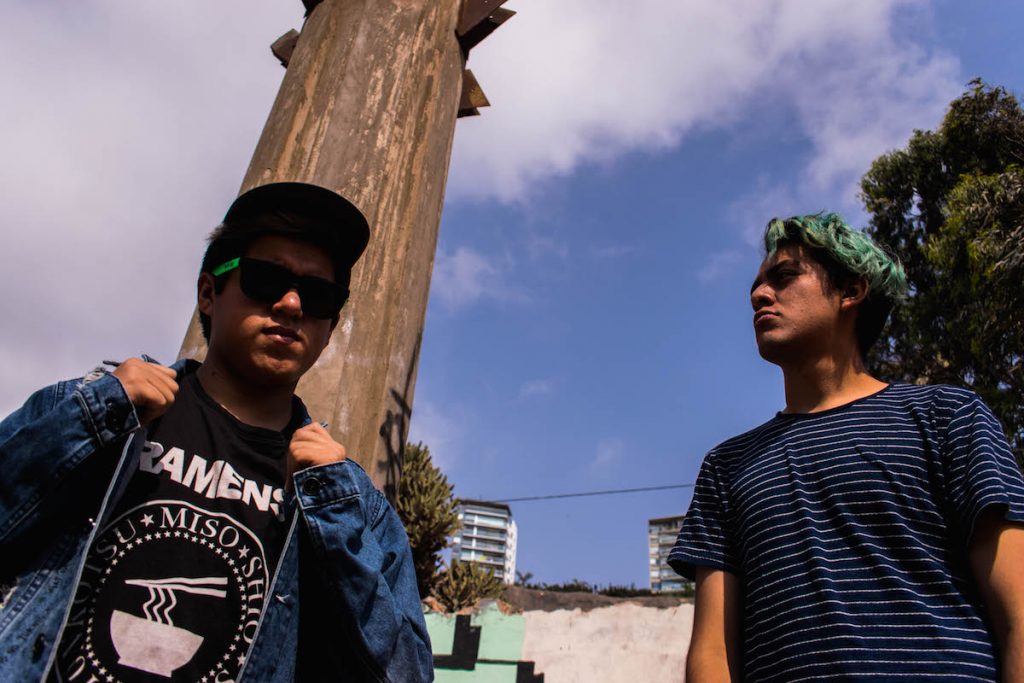Terror Negro Records’ releases have revolved around interpretations of genres like cumbia, reggaeton, and hip-hop (and any transformation of the three), but the Peruvian imprint’s catalog is continuously growing in diversity, making it harder and harder to pinpoint a particular sound. With its latest compilation, Ritmo Diablo, the label further broadens its artistic repertoire, as it gathers tracks by local producers where the main source of inspiration is traditional Afro-Peruvian music from the country’s coast.
“I started noticing that several producers from the [Peruvian] scene were starting to work with these rhythms,” says Paz Ferrand, aka Deltatron, Terror Negro’s head honcho, about the compilation’s inception. “After the cumbia and tropical rhythms boom, I think there was a time when people kept exploring the rest of the Peruvian musical spectrum…It caught my attention that almost all of them were using Afro-Peruvian rhythms, and I was interested in compiling some of those exercises.”
The 12 songs included on Ritmo Diablo are built from samples of Afro-Peruvian rhythms or programmed reinterpretations of them. From the get-go, opener “El Desayhumo” by Tribilin Sound and Sonidos Profundos puts the spotlight on recognizable festejo drums, adorned with little more than gentle guitar and bass lines and sound effects, exuding an organic quality. Deltatron himself rebuilds festejo loops with 808 drum machines on “Hijo del Diablo,” going the extra mile to reference the genre’s melodies with its synths.
Lima’s Shushupe was already playing with samples from Conjunto Perú Negro’s 1974 album Son de los Diablos when she was invited to participate on the compilation, so her urgent track “Fiebre Voodoo,” which alternates dubby passages with festejo-fueled beats, fits like a glove. “It’s very important to rescue Afro-Peruvian rhythms because they represent the identity of people who were enslaved; it’s the sound of their liberation,” she explains.
Elegante & La Imperial’s 2010 track “Lundu Landó,” which many now consider a staple in this movement, is an unsettling blend of dubstep and landó samples found on a Chabuca Granda vinyl. “I’m always interested in researching and experimenting with Peru’s musical roots. [This is] an opportunity to pay tribute to Peruvian music but from my personal musical universe,” says the producer, born Daniel Martinetti.
El Duende also borrows traditional instruments like the marimba to craft the stunning “Sikuri Al Carmen,” and Chakruna gives trap a festejo makeover on “Cajón Rebelión.” Zufu’s futuristic bass-heavy “Solo” works as an equivalent to South Africa’s gqom, and is one of the most inventive moments on the compilation.
Something worth noting is that none of the participating producers are Afro-Peruvian themselves. “Most of the Afro-Peruvian musicians I know are studio musicians and they remain true to their tradition,” says Deltatron. “But we’re on the lookout. We’re organizing a record release event next February and the proceeds will go to the Centro Cultural Amador Ballumbrosio in El Carmen, Chincha…Our idea is to be able to give production and electronic music workshops in the future. I’m very interested in giving tools to kids who want to learn how to produce and normally don’t have the resources. Who knows? Maybe the next big Peruvian beatmaker will come out of that region.”
Ritmo Diablo is a fine creative exercise, and it sheds light on the largely unexplored Afro-Peruvian musical tradition, which has been successfully referenced by a handful of contemporary acts, including Novalima and Dengue Dengue Dengue. Hopefully, this compilation will open the doors for international audiences to research these original sounds, and for Afro-Peruvian musicians and producers to experiment with their roots.
Ritmo Diablo is out now on Terror Negro Records.




